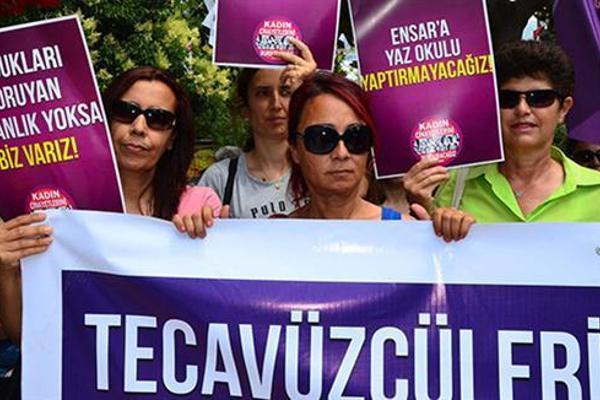Turkey’s introduction of chemical castration for sex offenders prompts mixed reaction
Nazlan Ertan - nazlanertan@gmail.com


DHA photo
Turkey has implemented a chemical castration program for sex offenders amid objections from women’s groups who claim that the regulation will not provide a real deterrent to Turkey’s ever-increasing number of sexual assault cases.The new regulation, which was published in the Official Gazette on July 26, states that medical treatment to lower or terminate sexual drive may be applied to individuals convicted of sex offences.
“This is both against human rights and medical ethics,” said Gülsüm Kav, the president of the “We Will Stop Femicide Platform,” a nationwide women’s network which provides legal assistance and support to women who are victims of violence and sexual assaults. The group was formed after the rape and decapitation of a 17-year-old by her boyfriend.
At the time, two women from the ruling Justice and Development Party (AKP) proposed medical treatment, or rather, chemical castration, for sexual offenders, saying they were inspired by a similar debate on the issue in Italy at the time. Since then, various countries, including Poland, have passed legislation to implement forced chemical castration on child molesters and other sexual offenders. The calls for chemical castration gained new momentum amid public outrage in Turkey following the brutal murder of 20-year-old Özgecan Aslan by a minibus driver who attempted to rape her in February 2015.
The move to impose chemical castration – or “treatment” as the AKP has referred to it – has come at a time in which the government can pass legislation with little opposition due to its extended powers of legislation under the state of emergency that was imposed after a failed coup attempt on July 15.
The statement from the platform criticized the castration decision as “one of vengeance” rather than justice.
“What we want, as women who fight against violence, is the maximum penalty for those who kill women and effective state protection for women who report abuse and threats from [estranged] partners and husbands,” the statement said.
“This issue of treatment or chemical castration is both unclear and avoids mentioning the consent of the offender,” said Flying Broom, another women’s group, in an open letter to the president and the prime minister in 2014, when the issue was first raised.
“The issue is linked to constitutional rights, and the fact that it is being addressed in a regulation without a debate is a mockery of law,” it said.
The recent regulation clearly states that the consent of the offender will not be sought. A court will issue a final decision regarding the treatment following the preparation of a medical report. At the same time, an offender will be subjected to greater penalties if he fails to continue with the treatment.
Other points in the regulation have attracted support, as offenders will be barred from living in the area where their victim either works or resides, be barred from approaching the area where the victim is located, and prohibited from working in an environment that involves being together with children.
While the Turkish government has pledged to fight against violence against women in general and rape and sexual assault in particular, Turkish women’s associations and individual activists complain that legal measures have fallen short, as rapists and sexual offenders benefit from reduced penalties due to “good behavior” and that women who ask for protection against potential offenders are not properly protected by the state.
The İzmir Bar Association’s expert on cases of violence against women, Nuriye Kadan, said the number of femicides in the last few years had ranged between 5,000 and 6,000. “State bodies either cannot or do not disclose exact records, so different platforms try to fill in this gap in terms of adequate data through media monitoring,” she said.
The most recent of these projects to fill in the data gap was by journalist Ceyda Ulukaya, who produced an interactive “Femicide Map” of Turkey. The project, supported by the Platform for Independent Journalism, contains detailed data about 1,134 femicide victims between 2010 and 2015, including the victims, the identity of the accused/murderer, the reason and links to newspaper stories about their murders.
Both qualitative and quantitative data shows that the majority of the victims were killed by husbands/ex-husbands (608 cases) and boyfriends/ex-boyfriends (161).
Moreover, up to 3,000 rapists and abusers in Turkey have married their victims in order to avoid prosecution, the head of the Supreme Court of Appeals department that handles sexual crimes, Mustafa Demirdağ, told Parliament’s Sexual Abuse Prevention and Investigation Commission earlier this month.
